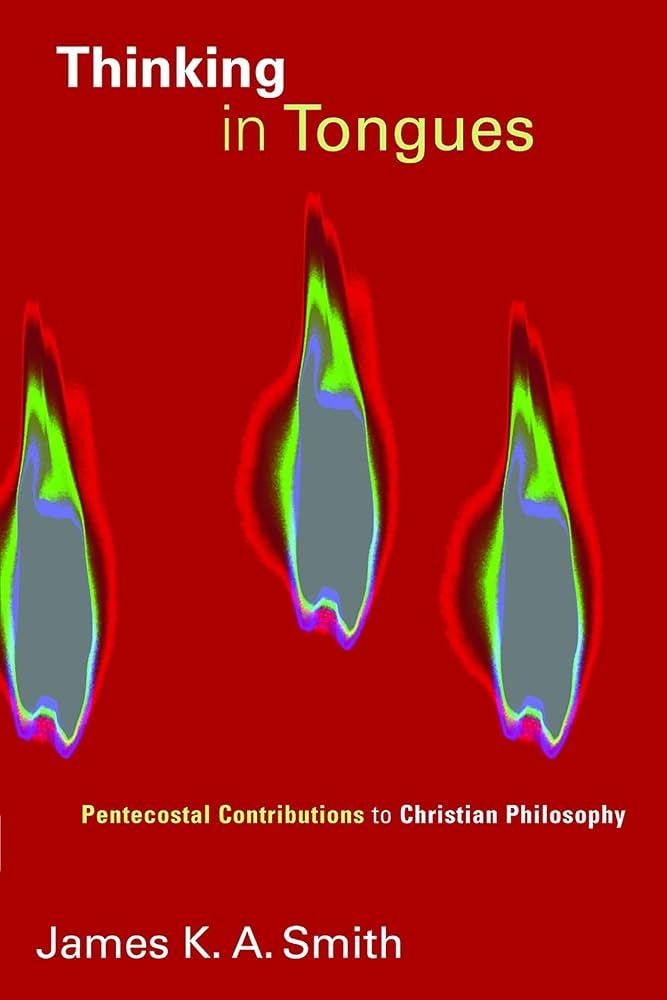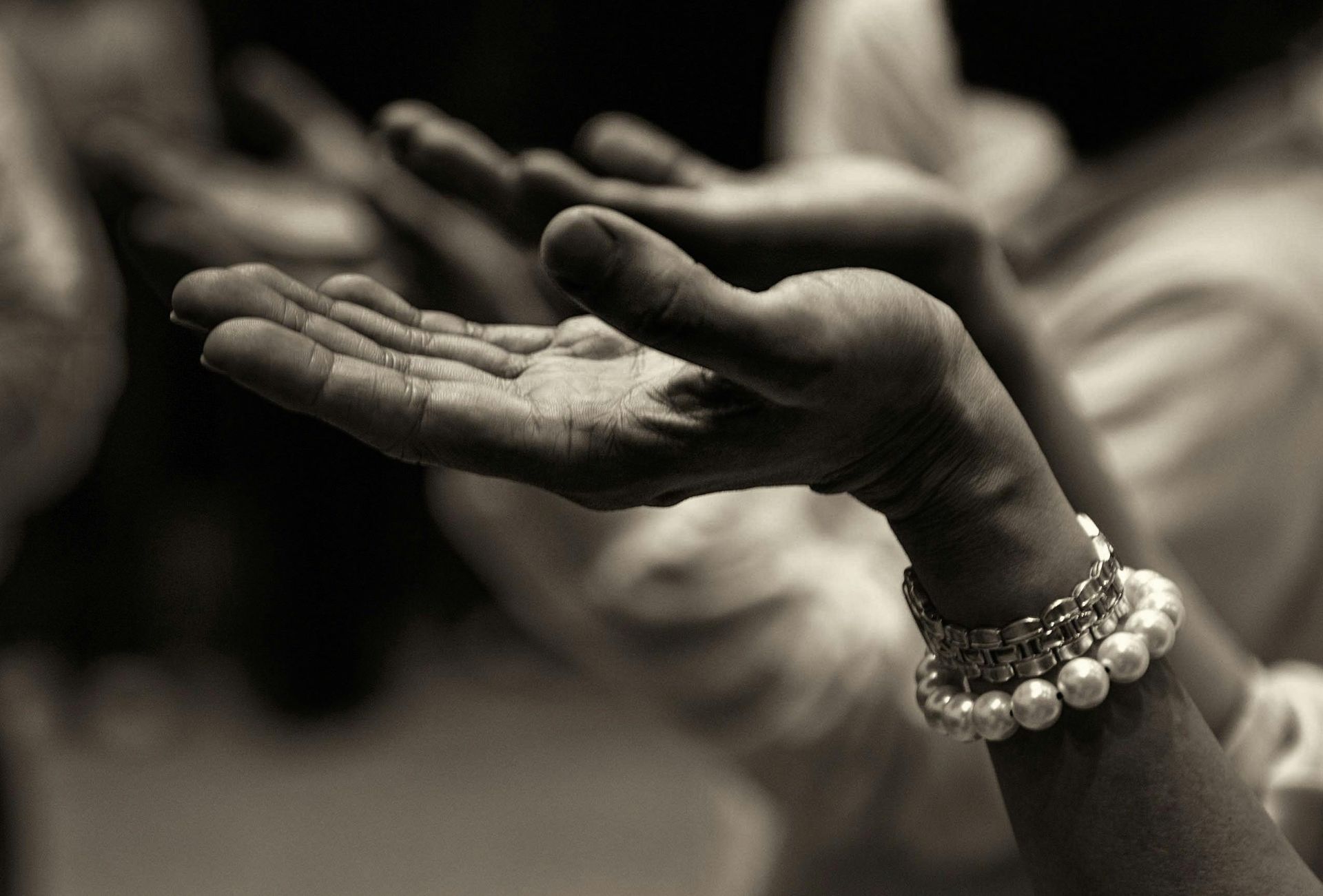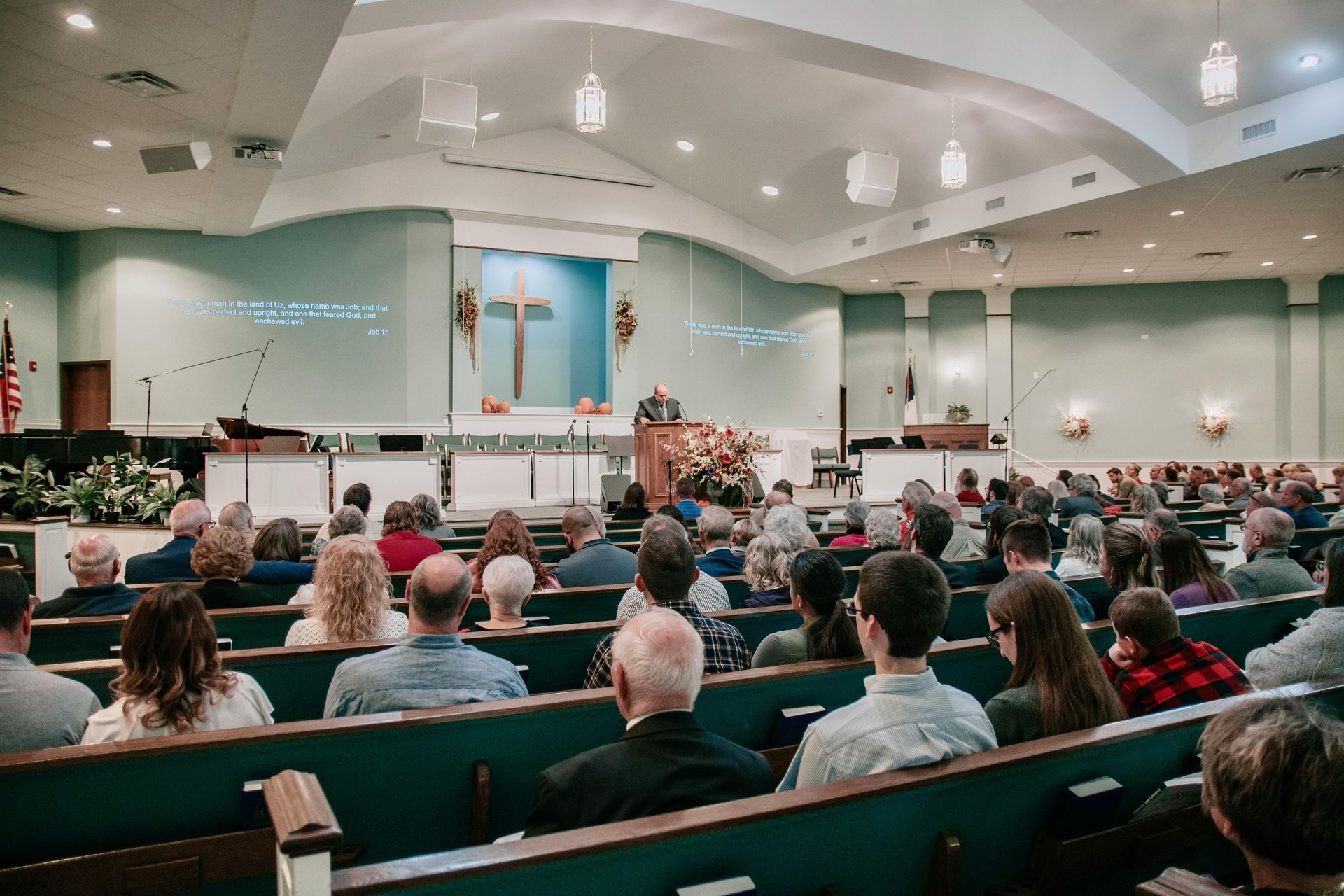Is There Room at the Table? A Review and Reflection (15 Years Later)
Reflecting on How Much Has Changed in Pentecostal Scholarship Over the Last 15 Years

Someone recently asked in a Facebook group if anyone had read the book Thinking in Tongues by James Smith.
I had, and so chimed in, and it got me thinking about this review I wrote "way back" in 2010.
It's been 15 years since the book and that review came out. It's amazing to reflect on how far Pentecostal scholarship has come in the last 15 years, with hundreds of academic titles released in dozens of special series by publishers, all dedicated to Pentecostal scholarship (including my own book as a part of T&T Clark's Systematic Pentecostal and Charismatic Theology series).
But Smith's book was one of the first I remember as a young scholar as a part of a series, the Pentecostal Manifestos series launched by Eerdmans in 2010. The first few volumes included titans of Pentecostal scholarship such as Frank Macchia, Wolfgang Vondey, and Amos Yong. I remember feeling proud of the "mainstream" exposure Pentecostal scholarship was getting, and it encouraged me to write the review below for a student magazine where I was studying at the time.
Since the magazine that published my original review is no longer in print or available online, I thought I'd "reprint" it here on the blog (although it has been available on my Academia page for a while).
So, on the 15th anniversary of the book and that review, here it is, without edit from it's original wording in 2010 (so you may hear the voice of a much younger Joseph!).
* * * * *
Is There Room at the Table?: A Review and Reflection.
By Joseph Dutko
Smith, James K. A. Thinking in Tongues: Pentecostal Contributions to Christian Philosophy. Grand Rapids: Eerdmans, 2010. 155 pages.
James K. A. Smith’s new book Thinking in Tongues is the inaugural volume of the Pentecostal Manifestos series, edited by Smith along with Amos Yong. Smith, associate professor of philosophy at Calvin College and a visiting professor to Regent this past summer, seeks to give an “articulation of the elements of a distinctly Pentecostal philosophy” and explain “what that Pentecostal philosophy has to offer broader conversations” (xiii, xv). Therefore, Smith doesn’t aim to articulate a sectarian philosophy for Pentecostals only but is interested in making a Pentecostal contribution to Christian philosophy (xviii); he hopes that Pentecostals “can take a seat at the wider philosophical table” (151).
Chapter one lays the groundwork for the very idea of a Pentecostal philosophy, while chapter two unpacks the elements of a Pentecostal worldview. These discussions set up the philosophical implications of a Pentecostal worldview in relation to epistemology (chapter 3) and ontology (chapter 4). Chapters five and six then argue that Pentecostal spirituality and identity (especially glossolalia, or “speaking in tongues”) challenge, critique, and contribute to the dominant paradigms in philosophy of religion and philosophy of language.
Et Cetera asked me to not only give a brief review of this book, but also share some of my own reflections on being a (hopeful) Pentecostal scholar. As Pentecostalism enters its second century and second generation of serious scholars, it’s exciting to see a book and a series like this one by a scholar like Smith, who describes himself as a philosopher with a “Pentecostal imagination.” I can sympathize with Smith’s experiences of telling other scholars he is a Pentecostal, as opposed to others in the academic world who were once Pentecostals but (of course) abandoned that kind of Christianity when they became “serious” scholars. Smith speaks of the apparently “scandalous idea that Pentecostals can be thinkers” (xii).
In my graduate program in religious studies, I remember a class in which the professor went around the room and asked all of us what our tentative topics were for our master’s theses. My friend, the only other Pentecostal in the program, announced that he was writing on Pentecostal intellectuals. The professor quickly scoffed and made some sort of joke about it probably being a short thesis and that he might have trouble finding much to write about. Even here at Regent (where I only audit one course a term, but my wife is a full-time student), I have been surprised by the lack of knowledge and misconceptions about Pentecostalism by students and even by faculty on occasion. One professor (and I’m quite sure I’m not taking this out of context in any way) actually spoke of modern Pentecostalism as a fringe group. Of course the truth is that there are approximately half a billion Pentecostal/charismatic Christians (one quarter of all Christians worldwide), and tongues-speaking Pentecostals are the second largest family of Christians in the world behind Catholics. That’s not much a fringe group. In his course last term on the globalizing of evangelicalism, Don Lewis said (and he’s joined by others on this) that “in fifty years, Pentecostalism will be regarded as the most important religious movement of the twentieth century.” Martin Marty says that Pentecostalism has had a greater impact on Christianity than the Reformation. This impact has spilled over into the academic world with the Society for Pentecostal Studies and several academic journals dedicated to Pentecostal studies and theology. Despite its admittedly anti-intellectual past, Pentecostals are beginning to find a place at the academic table.
Pentecostalism is and has been transforming global Christianity, so we should expect it to influence Christian (and even non-Christian) scholarship. This is why a book and a series like this one is important. Smith’s work exemplifies the shift from an “in-house” mentality in Pentecostal scholarship—Pentecostal scholars focusing on Pentecostal issues for fellow Pentecostals—to a more outward and engaging scholarship that brings the Pentecostal worldview to issues that are not strictly Pentecostal. (For example, Smith says that philosophers of language, even Christian philosophers, rarely consider the theoretical implications of glossolalia in their work). Smith suggests that Pentecostal scholarship “is not just ‘evangelical’ scholarship + a pneumatology, but that there is a unique ‘genius’ implicit in Pentecostal spirituality that should yield a distinct and integral philosophy” (xiii). Hopefully books like this will inform non-Pentecostal scholars who may be unaware of Pentecostal scholarship and those who have overlooked Pentecostal ideas, spirituality, and identity in their works of scholarship. So we might be a little late, but please save us a place at the table.
NEWSLETTER SIGNUP (blog post layout)
ABOUT JOSEPH
Pastor, Author, and sometimes pretends to be a scholar
Joseph (PhD, University of Birmingham) is the author of The Pentecostal Gender Paradox: Eschatology and the Search for Equality.
Since 2015, he and his wife have together pastored Oceanside Community Church on Vancouver Island, where they live with their four children.










